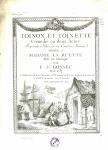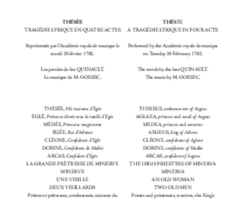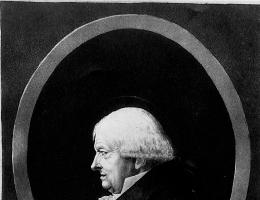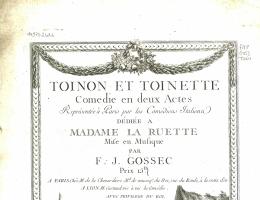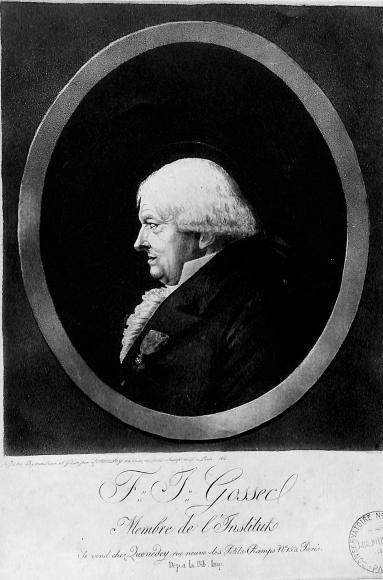
François-Joseph GOSSEC
1734 - 1829
Conductor, Composer
Gossec, who was born in Hainaut and almost reached his centenary, lived through the Ancien Régime, the French Revolution, the French Empire and the Restoration. Moving to Paris in 1751, he played a prominent role in French institutional life. In 1769, he founded the Concert des Amateurs. Successively co-director of the Concert Spirituel, director of the Académie Royale de Musique and of the École Royale de Chant, he became one of the pillars of the Paris Conservatoire from 1795. He held the positions of Inspector and Professor of Composition there, worked on several teaching manuals, and wrote a Traité de l’Harmonie and Les Principes de Contrepoint. A member of La Pouplinière’s orchestra when he arrived in France, he composed some works of chamber music and symphonies. His acquaintance with Johann Stamitz, who conducted the orchestra, allowed him to assimilate the style of the Mannheim School. Employed by the Prince of Condé and the Prince of Conti in the early 1760s, Gossec wrote some opéras comiques. Neither these works, nor his subsequent operas did particularly well in the theatre repertory. However, in 1760, his Messe des morts achieved huge success. In fact, Gossec excelled in his treatment of large choral and orchestral forces. This can be seen by the works he wrote for the revolutionary celebrations, in which he used wind instruments and percussion, particularly well-suited to open-air performances. Of his last works, the Symphonie à 17 Parties (1809) and the Dernière Messe des Vivants (1813) are particularly noteworthy. His experiments with form and sound make him the greatest French symphonist of his time, and one whose legacy was put to good use by Beethoven and Berlioz.
Documents and archives

Testimonial, Correspondence


